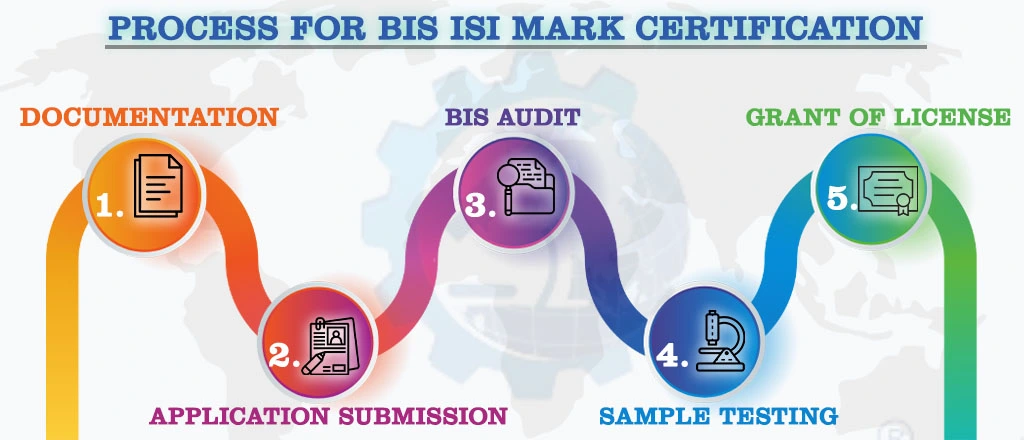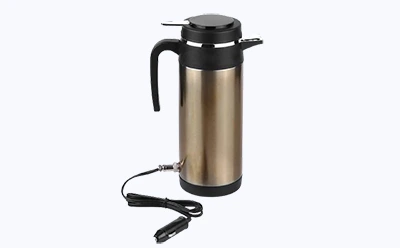BIS CERTIFICATION FOR ELECTRIC KETTLES AND JUGS
IS 367: 1993
Surviving in this competitive industry without a standard quality and certified product is challenging. In order to develop market dependence on their products, industries must produce a standard quality product.
A BIS license is also required to use the standard ISI Mark and sell products in India. To obtain a BIS licence and produce a high-quality product, the manufacturer must ensure that their product meets the Indian standard.
Let's take a closer look at IS 367:1993 for Electric kettles and jugs for household and similar use.
Electric kettles and jugs for households and similar applications are covered by IS 367:1993. This standard specifies the general, safety, and performance requirements for electric kettles, jugs, and other similar appliances for household and similar use with a rated capacity of not more than 51 liters and connections for supplies with voltages not exceeding 250 volts, alternating current, single phase, or direct current. This standard does not apply to dry or steam pressure sterilizers, coffee percolators, portable immersion heaters, or storage water heaters. The kettle or jugs must meet Indian standard IS 367: 1993.
Electric kettles and jugs must be constructed in such a way that no electrical or mechanical failure could compromise compliance with this standard during normal usage. Ferrous parts that rust and cause the appliance to fail to meet this standard must be adequately protected from rusting. Various tests will be performed to ensure that appliances meet Indian standards. The kettle or jugs must meet the specifications stated in clauses 8 to 32 of IS 302-2-15 (1993). A laboratory must be sufficiently maintained for the numerous tests to be performed according to the methods stated in the standard.
TESTS
The test shall be carried out per the method specified in Indian standards.
- Capacity
- Time to boil water capacity
- Overall dimensions
- Mass
- Minimum quantity of water that can be boiled
- The temperature of the supporting surface
- Thermal efficiency
- Protection against access to live parts
- Power input and current leakage current and electric strength at operating temperature
- Provision for Earthing
- High Voltage test
Labelling and Marking
Labelling and marking shall be done as per the requirements of IS 367: 1993. The electric kettle or jug shall be marked with rated capacity, time to boil rated capacity of water, the minimum quantity of water that may be boiled, and thermal efficiency. The kettle or jugs may also be marked with standard mark.
To use a standard mark, all manufacturers must get a BIS licence from the Bureau of Indian Standards. The Bureau provides a licence based on a successful assessment of the manufacturing infrastructure, production process, quality control, and testing capabilities.

NOTE:
For Detailed Information about the Procedure for BIS ISI Certification, Visit :
Conclusion:
If a product falls under the scope of the BIS Conformity Assessment Scheme, All the manufacturers, importers, and foreign entities must obtain BIS ISI Certification. The Bureau may cancel the License if the product fails to meet certification requirements.
Aleph INDIA has been serving the industry as a single-window operator for all product regulatory compliance. We can assist importers or manufacturers in meeting all criteria for importing or selling a product in the Indian market.
International Audits & Participation
Testimonials
BIS REGISTRATION FOR ELECTRONIC & IT PRODUCT
In the era of globalization, world trade is growing rapidly and henceforth, Manufacturing and Import/Export businesses are also growing drastically...View More
BIS CERTIFICATE FOR FOREIGN MANUFACTURER
The Economy of India-the fastest developing economy on the globe with the capabilities that help it matches up with the biggest international...View More
PRODUCT CERTIFICATION SCHEME (ISI MARK) FOR DOMESTIC MANUFACTURERS
Anything a person buys from food to cars, clothes to electronics, branded to unnamed products there is always a question that wanders in one’s...View More
WIRELESS PLANNING AND COORDINATION (WPC)
WPC: Wireless means communication done from one point to another point without the wires and cables. Electromagnetic waves carry the ...View More
BUREAU OF ENERGY EFFICIENCY (BEE) CERTIFICATE
BEE CERTIFICATE: Energy is the future, and its conservation is the way of the bright future. Everyone claims the environment is important...View More
E-WASTE MANAGEMENT
E-waste is one of the world's fastest-growing trash streams. We currently manufacture almost 50 million tones of it each year...View More
Request a call back.
Would you like to speak to one of our Senior Technical advisers over the phone? Just submit your details and we’ll be in touch shortly. You can also email us if you would prefer.
BIS REGISTRATION FOR ELECTRONIC & IT PRODUCT
In the era of globalization, world trade is growing rapidly and henceforth, Manufacturing and Import/Export businesses are also growing drastically...View More
BIS CERTIFICATE FOR FOREIGN MANUFACTURER
The Economy of India-the fastest developing economy on the globe with the capabilities that help it matches up with the biggest international...View More
PRODUCT CERTIFICATION SCHEME (ISI MARK) FOR DOMESTIC MANUFACTURERS
Anything a person buys from food to cars, clothes to electronics, branded to unnamed products there is always a question that wanders in one’s...View More
WIRELESS PLANNING AND COORDINATION (WPC)
WPC: Wireless means communication done from one point to another point without the wires and cables. Electromagnetic waves carry the ...View More
BUREAU OF ENERGY EFFICIENCY (BEE) CERTIFICATE
BEE CERTIFICATE: Energy is the future, and its conservation is the way of the bright future. Everyone claims the environment is important...View More
E-WASTE MANAGEMENT
E-waste is one of the world's fastest-growing trash streams. We currently manufacture almost 50 million tones of it each year...View More
View All Services
Request a call back.
Would you like to speak to one of our Senior Technical advisers over the phone? Just submit your details and we’ll be in touch shortly. You can also email us if you would prefer.






























